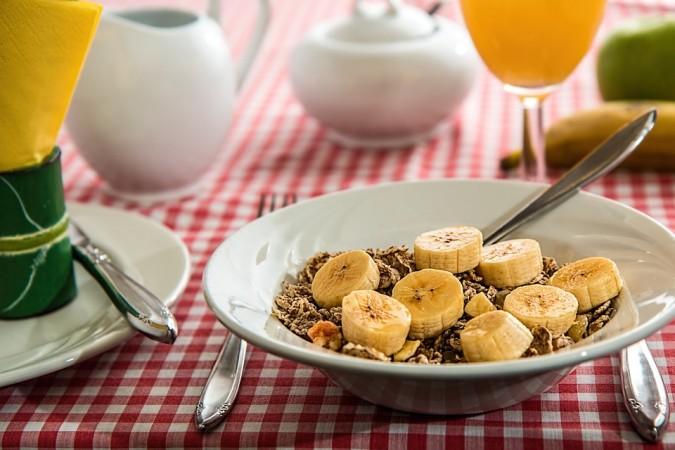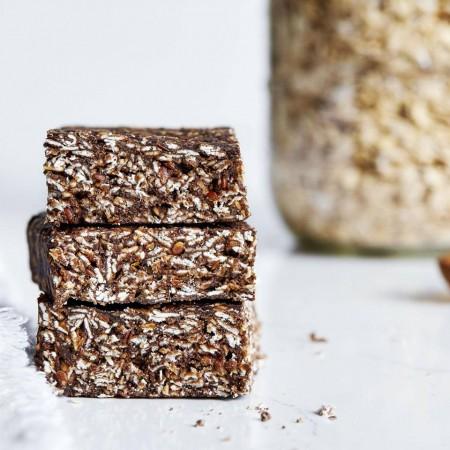There is probably no other nutrient that gets as much attention with sportspeople more as protein owing to its role in muscle growth and repair. Protein is found in a range of foods and is also available in a variety of formulated supplements drinks, bars and powders.
For some, protein supplements can be helpful as a part of their overall nutrition plan, however, they certainly aren't essential for everyone. Let us look at some folk tale and evidence-based nutrition around proteins.

Can we build strength and muscles through natural protein sources?
Did you know that muscle growth or building is only possible when you provide adequate protein in the diet, whether you are a vegan, a non-vegetarian or vegetarian, muscle growth will happen only if you consume the required amount of protein throughout the day.
The key for ideal protein consumption is evenly distribution of proteins in the meals, in sports nutrition we say understand the "timing of protein". If your target protein intake in 80 gm per day, consume 20 gm with each meal and have in between snacks of 5 gm protein each.
What are the general requirements for protein across specific sports?
Protein requirements for an elite male endurance athlete need 1.2 g/kg/d, moderate-intensity endurance athlete needs 1.2 g/kg/day, football or any power sports need 1.4-1.7 gm/kg/day, resistance athlete in early-stage needs 1.5-1.7 gm/kg/day and at a maintenance, stage needs 1-1.2 gm/kg/day.
Now within each sport you have to decide the level of intensity for example within cricket a fast bowler's requirements for protein is higher when compared to a spin bowler. There is no one size fits all.
![Protein rich food. [Representational image] protein rich food](https://data1.ibtimes.co.in/en/full/683975/protein-rich-food.jpg?h=450&l=50&t=40)
Should we depend on synthetic supplements for protein consumption?
Our diet provides natural sources of protein. We shouldn't depend on synthetic sources of protein unless one is unable to meet the requirements for the day. It is important to be aware of the ingredients in the product. Think if it is safe to consume if it is legal and is it effective before consuming them.
What are some rich sources of protein in the diet?
Protein in our Indian diet includes daal (lentils), pulses like chickpeas, kidney beans, cowpeas and many more, dairy and dairy products like curd, buttermilk, paneer or cottage cheese, cheese, fish, nuts, edible seeds like hemp seeds, chia seeds, pumpkin seeds, sunflower seeds, chicken, mutton or meat of any variety and eggs and some grains like quinoa, amaranth, spelt to name a few.

What are some vegan sources of protein?
Hemp seeds, tofu, tempeh, nuts, edible seeds like chia seeds, sunflower seeds, pulses of any variety, spirulina, amaranth, quinoa, spelt, spirulina, soy milk, nut butter, sprouts are some vegan sources of protein.
Can you share some protein-rich meal combinations?
Proteins are made of 20 amino acids, of these 9 are considered essential, like the most important ones and these must come from our diet as our body doesn't make these. An Indian diet comprising both daal and rice makes it a complete wholesome essential amino acid meal diet.
Ideally, a protein meal should be combined with carbohydrate like chicken and mashed potatoes or fish and rice. When you combine a protein meal with carbohydrates in the moderate portion it prevents muscle atrophy and provides a complete wholesome meal when combined with vegetables.
What happens if we consume excess protein?
If you consume more than 2 gm/kg/day per day of protein it will not show any improved benefit in muscle synthesis. Research doesn't indicate any side effects on the kidney unless you have any underlying health condition.

What is the average amount of protein required for a sedentary lifestyle?
On an average a person with a sedentary lifestyle requires 0.8gm/kg/day - 1 gm/kg/day of protein. If you have to calculate on an average a person who weighs 70 kgs require 56 gm – 70 gm protein per day to maintain his requirements.
How much protein is in each food? Is there a ready reckoner?
A ready reckoner comes handy in calculating the amount of protein in certain foods. The following foods below provide protein equivalent to 10 gm of protein each.
▪ 35gm cooked lamb or mutton
▪ 40gm cooked chicken with no bones
▪ 50gm cooked fish
▪ 1 cup double toned milk
▪ 200gm low-fat curd
▪ 1.5 slices or 30gm cheese
▪ 70gm paneer
▪ 2 small eggs
▪ 1 cup cooked lentils
▪ 3 tablespoons hemp seeds
What is an easy homemade protein drink recipe?
A personal favourite post-workout drink is 2 tablespoons sattu (roasted gram powder) in 1 glass buttermilk for recovery or 2 glasses of milk with some almonds. Milk provides a complete essential amino acid profile which makes it an ideal drink to consume post-workout drink. One can also make mango smoothie or banana milkshake for recovery.
How much protein is enough?
Some people consume Proteins more than 2gm/kg/ day of their body weight whereas some may not even achieve the correct requirement for the day. Research doesn't show any evidence of health benefit in consuming protein more than 2gm/kg/day.
What are 'whey proteins'?
They are a high biological value protein that is rapidly digested. Whey is rich in branched chain amino acids (BCAAs), especially leucine. There are 3 main forms of whey protein - Whey Protein Concentrate (WPC) – Typically 70-80% protein by weight with small amounts of lactose (milk sugar) and fat. Cheaper than whey protein isolate.
Whey Protein Isolate (WPI) – Powder is usually 90% protein by weight, with negligible amounts of carbohydrates (lactose) and fat.
Whey Protein Hydrolysate (WPH) – Derived from WPC or WPI and characterized by shorter peptides or amino acid chains, supposedly resulting in even more rapid digestion but evidence to date is conflicting.
What is the difference between different protein powders?
The range of protein and amino acid supplements available can be quite confusing. Protein supplements can be broadly classified according to their nutrient profile as either providing protein only (as a single protein source or a protein blend i.e. combination of several proteins).
There are also supplements which contain a combination of protein and carbohydrates. Some supplements also have additional ergogenic ingredients such as creatine, specific amino acids, proposed fat metabolisers, vitamins and minerals. I strongly suggest consuming them under supervision.
The ultimate health mantra
Your body is not your ornament, it is a vehicle to your dream. Choose your fuel wisely.
(About the author: This is a guest article by Swati Bathwal, an accredited practising Dietitian Nutritionist and Public Health Dietitian, Certified Diabetes Educator, an accredited Anthropometrist and a registered Yoga Teacher.)

















